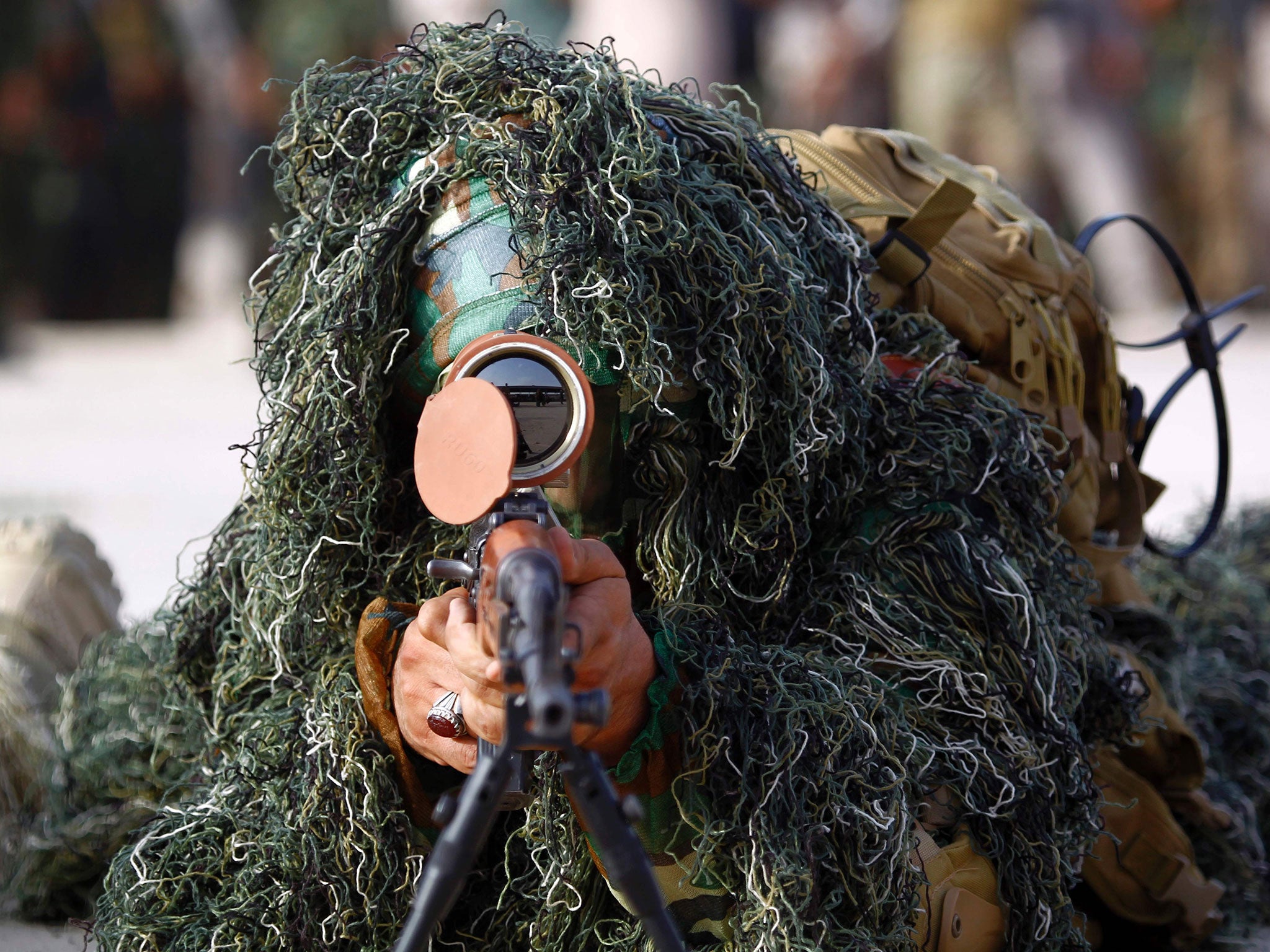Fallujah: Iraq says it has begun major assault on Isis-held city
The military is 'approaching a moment of great victory' against Isis, says prime minister Haider al-Abadi

Iraqi forces have launched an operation to retake the Islamic State-held city of Fallujah.
The military was "approaching a moment of great victory" against IS, said prime minister Haider al-Abadi in a TV address late on Sunday night, surrounded by top military commanders from the Ministry of Defence and the country's elite counter-terrorism forces.
Fallujah is about 40 miles west of Baghdad and has been under the control of IS for more than two years.
The announcement comes at a time of deepening political and social unrest in Baghdad.
Clashes between protesters and Iraqi security forces inside Baghdad's highly-fortified Green Zone compound left two people dead after security forces fired tear gas, water cannon and live ammunition in an attempt to disperse the crowds. More than 100 people were wounded, hospital and police sources said.
The Green Zone houses most Iraqi government ministries and foreign embassies.
Mr al-Abadi's office released the results of a preliminary investigation on Sunday that claimed police and military guards did not fire directly into the crowd of demonstrators.
Many of the protesters were supporters of powerful Shiite cleric Muqtada al-Sadr, who has led months of demonstrations and sit-ins calling for government reforms. Al-Sadr has since issued a statement condemning the use of force against "peaceful" demonstrations and vowed to continue to support the "revolution" against the government.
Mr al-Abadi spoke by phone with US president Barack Obama on Saturday and "agreed on the critical importance of improving the security" of Baghdad and the Green Zone, according to a White House statement. It added that the two leaders also discussed progress being made in the campaign against IS.
Iraq's political crisis has left the government deadlocked as security forces struggle to fight IS.
In the midst of the political crisis Iraqi ground forces backed by US-led coalition air support have achieved a number of territorial gains against IS, most recently in Iraq's vast western Anbar province.
Last week. Iraqi forces pushed IS out of the western town of Rutba, 240 miles west of Baghdad, on the edge of Anbar province. Last month, Iraqi forces cleared territory along Anbar's Euphrates river valley after the provincial capital Ramadi was declared fully liberated earlier this year.
However Fallujah is expected to be a complicated fight.
The city is still home to tens of thousands of civilians and has been under IS rule longer than any other territory recently retaken by Iraqi forces.
Iraqi security forces repeated calls for civilians trapped inside Fallujah to flee on Sunday, but residents say checkpoints controlled by the extremists along all roads leading out of the city are preventing most from fleeing.
Despite a string of territorial defeats, IS still controls significant patches of Iraqi territory in the country's north and west including the country's second largest city of Mosul.
The militant group also has claimed responsibility for a series of large-scale bombings in and around Baghdad recently that killed hundreds of people.
During the Iraq War, Fallujah was an insurgent stronghold and the site of the bloodiest battle of the Iraq War.
In November 2004, US forces led a coalition attack against several thousand insurgents in Fallujah in which thousands of buildings were destroyed in house-to-house fighting. More than 80 American troops were killed along with an estimated 2,000 militants.
Join our commenting forum
Join thought-provoking conversations, follow other Independent readers and see their replies
Comments
Bookmark popover
Removed from bookmarks